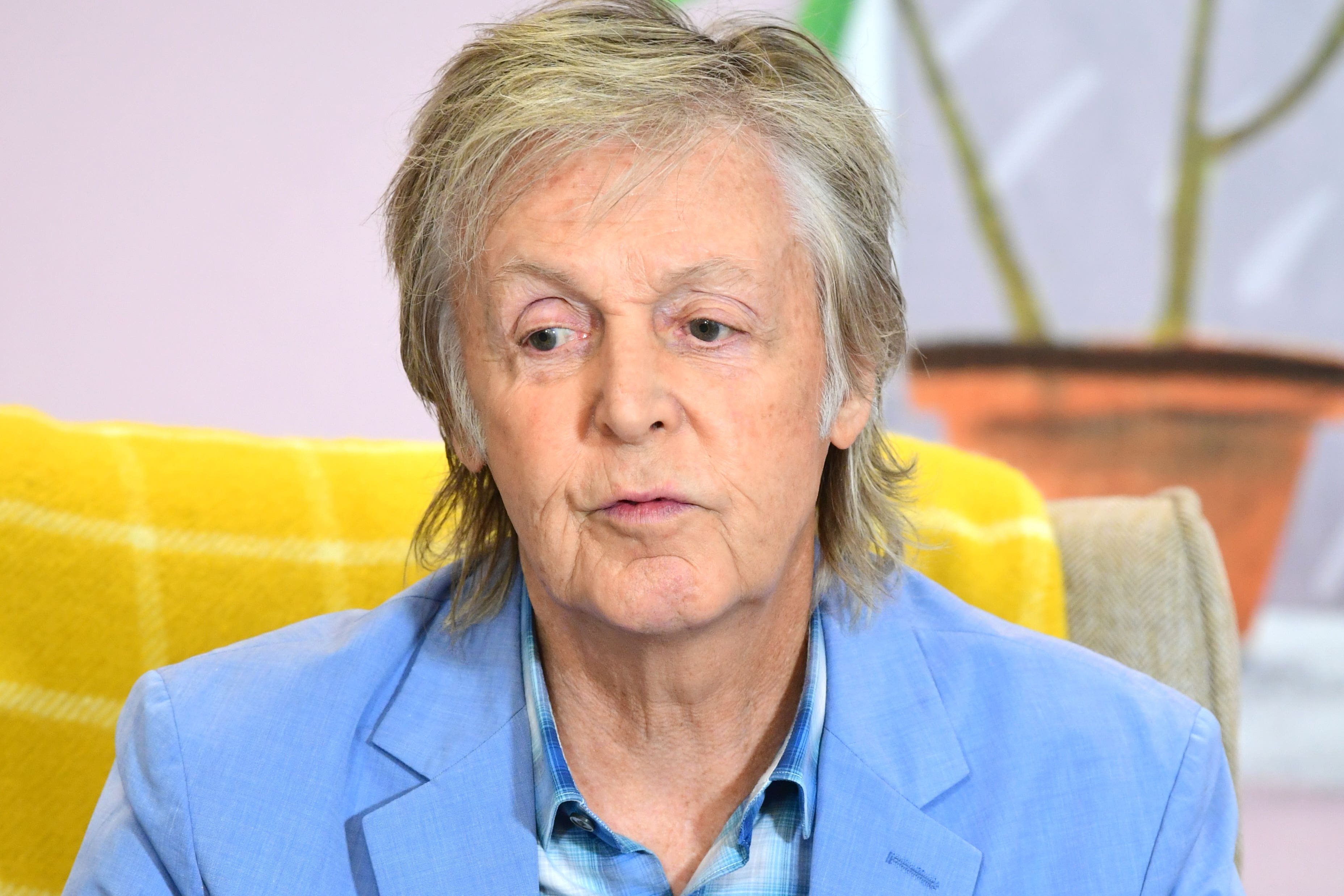Paul McCartney calls Yoko Ono’s presence in Beatles studio sessions ‘workplace interference’
Musician says he and his bandmates ‘just got on with it’ because they were not ‘confrontational’
Your support helps us to tell the story
From reproductive rights to climate change to Big Tech, The Independent is on the ground when the story is developing. Whether it's investigating the financials of Elon Musk's pro-Trump PAC or producing our latest documentary, 'The A Word', which shines a light on the American women fighting for reproductive rights, we know how important it is to parse out the facts from the messaging.
At such a critical moment in US history, we need reporters on the ground. Your donation allows us to keep sending journalists to speak to both sides of the story.
The Independent is trusted by Americans across the entire political spectrum. And unlike many other quality news outlets, we choose not to lock Americans out of our reporting and analysis with paywalls. We believe quality journalism should be available to everyone, paid for by those who can afford it.
Your support makes all the difference.Paul McCartney has accused Yoko Ono of “workplace interference”.
The musician has reflected on a “period of change” in the Beatles’ history, during which John Lennon would invite his wife, the Japanese musician Ono, to the studio.
McCartney, 81, spoke about the subject in a newly released episode of his podcast McCartney: A Life in Lyrics.
Speaking to the Pulitzer Prize-winning poet Paul Muldoon, the Grammy award-winner opened up about how the rest of the band felt toward Ono, now 90, joining the recording process.
McCartney explained that she began attending the studio sessions at the same time as the band were “heading toward” a breakup. They had been recording 1968’s self-titled release commonly referred to as the White Album at the time.
“John and Ono had got together and that was bound to have an effect on the group,” he said.
“Things like Yoko being literally in the middle of the recording session [were] something you had to deal with,” he said later on in the episode.
“The idea was that if John wanted this to happen, then it should happen. There’s no reason why not.”

Muldoon mentioned to McCartney that the band, which comprised McCartney, Lennon, Ringo Starr, and George Harrison, were meant to be working during those sessions.
The “Let It Be” singer responded: “Anything that disturbs us, is disturbing.”
“We would allow this and not make a fuss,” he said. “And yet at the same time, I don’t think any of us particularly liked it. It was an interference in the workplace. We had a way we worked. The four of us worked with George Martin. And that was basically it.”
Record producer and musician George Martin is commonly referred to as the “Fifth Beatle” owing to his significant involvement in each of the Beatles’ albums. He died on 8 March 2016.
Enjoy unlimited access to 100 million ad-free songs and podcasts with Amazon Music
Sign up now for a 4 month free trial (3 months for non-Prime members)
Enjoy unlimited access to 100 million ad-free songs and podcasts with Amazon Music
Sign up now for a 4 month free trial (3 months for non-Prime members)
McCartney went on to say that no one raised an issue with Lennon over Ono’s presence because they were not “confrontational”.

“And we’d always done it like that. So not being very confrontational, I think we just bottled it up and just got on with it,” he said.
The Independent has contacted a representative of Ono for comment.
McCartney went on to say that spending time in the studio was part of his and his bandmates’ job as the Beatles.
He said: “It was the idea of the Beatles, it was also just this straight, practical thing of ‘This was our job.’ This is what we did in life.
“We were the Beatles. That meant if we didn’t tour, we recorded. And that meant if we recorded, we wrote.”

In 2021, McCartney appeared on an episode of BBC Radio 4’s interview series This Cultural Life with John Wilson.
During his time on the programme, McCartney opened up about the circumstances of the band’s split, which was formalised in December 1974 after years of legal disputes, which began in 1970.
The musician said that it had been Lennon who initiated the breakup, stating: “I didn’t instigate the split. That was Johnny.”

“I am not the person who instigated the split. Oh no, no, no,” he added. “John walked into a room one day and said, ‘I am leaving the Beatles.’ Is that instigating the split, or not?”
Similarly, in a 1970 interview with Rolling Stone, Lennon told the publication that he had informed McCartney that he was “leaving” the band.
McCartney said he felt Lennon was “always looking to break loose” from society.
“The point of it really was that John was making a new life with Yoko. John had always wanted to sort of break loose from society because, you know, he was brought up by his Aunt Mimi, who was quite repressive, so he was always looking to break loose,” he said of Lennon.
Earlier this week, McCartney paid tribute to Lennon on what would have been his 83rd birthday.
Posting on Instagram, the musician wrote: “Celebrating the birthday of my wonderful friend and collaborator, @johnlennon.”
Lennon died after being shot in New York City by Mark David Chapman. He had been with Ono at the time.




Join our commenting forum
Join thought-provoking conversations, follow other Independent readers and see their replies
Comments